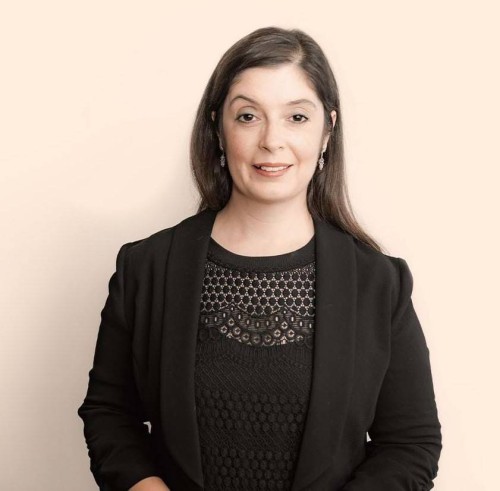Engage then exclude: global investment and NZ investors
OPINION: Chapman Tripp partners examine what the global investment stewardship movement means for New Zealand investors.
The rise of stewardship and ESG-aligned investing.
OPINION: Chapman Tripp partners examine what the global investment stewardship movement means for New Zealand investors.
The rise of stewardship and ESG-aligned investing.
“No one will be buried with the epitaph ‘He maximised shareholder value’”, the British economist Professor Sir John Kay once wrote. This quip from Professor Kay, himself a major player in the UK’s investment stewardship movement, understates the importance of the underlying sentiment which is currently rippling across the globe.
Investment stewardship, also known as active ownership, is seeing a wave of investors – both asset owners and managers – seeking to create long-term value not just for shareholders, but also the environment and society.
So what is investment stewardship? And why should New Zealand investors and companies be concerned with it? At its heart, stewardship sees investors using their influence over current or potential investees/issuers and other stakeholders to create and preserve long-term value by responsibly managing and allocating capital. Active owners use various levers, often collaboratively, to influence a company towards more sustainable outcomes. This can include voting, engaging directly with the company, filing shareholder resolutions, or advocating for policy changes.
While the tide of the stewardship movement, closely aligned with responsible and ESG investing, continues to rise globally, it is not a new concept. The UN Principles for Responsible Investment (UN PRI) was founded in back in 2005. The UK has had a Stewardship Code since 2010, a development catalysed by Professor Kay’s review into solutions to short-termism in equity markets. The group Climate Action 100+ was founded in the aftermath of the Paris Agreement to coordinate investor engagement with the 100 largest emitting companies globally.
What has changed is the pace and scale of the movement. Total assets under management signed up to UN PRI grew from US$6.5 trillion to over US$121 trillion between 2006 and 2021. Climate Action 100+ has reported an increase of 170% in investor participation since the initiative launched in 2017. Nature Action 100+, a new investor initiative focused on engaging with companies and policy makers on nature, launched in December 2022 in the margins of the UN biodiversity conference, COP15.

Chapman Tripp's Nicola Swan.
Global best practice is increasingly moving towards stewardship, with an “engage, then exclude” approach fast becoming the norm amongst responsible investors. This sees investors engaging first with portfolio companies to seek to improve emissions reduction or broader ESG outcomes before seeking to exclude these investments.
Simply divesting from carbon-intensive investments is increasingly recognised as ineffective in achieving emissions reductions or affecting cost of capital for excluded companies, as UN PRI has reported. A pure divestment approach risks creating a sort of ‘capital carbon leakage’ in which a group of top investors develop net zero portfolios, while the broader economy remains largely unchanged, producing only “paper” decarbonisation rather than cutting real-world emissions.
Recent reports such as “Integrity Matters”, a UN-commissioned report by a group of global experts including New Zealand’s own Dr Rod Carr, shone a light on the risk of greenwashing in net zero claims, outlining a role for all stakeholders, including investors, in ensuring net zero claims have integrity and are followed through on. Only through active engagement will investors be able to play a meaningful role in these sorts of outcomes.
While the rise of stewardship and ESG-aligned investing is often driven by a desire to do good, there is increasing evidence that returns are better for investors who engage in this way as well. Ethical funds generally proved more resilient through Covid-19, and indeed have done so over the past 10 years.

Chapman Tripp's Penny Sheerin.
Another sign of the scale of the stewardship movement is that over 30 countries are implementing their own domestic stewardship codes. This now includes New Zealand. This is a timely development; according to the report 2022 State of Net Zero Investment in Aotearoa New Zealand, corporate engagement by investors to drive the low carbon transition remains low in New Zealand. Whereas 36% of respondents in Australia had both a formal climate engagement strategy and targets, zero NZ respondents reported having both in place.
New Zealand’s first Stewardship Code provides a roadmap for this engagement, by giving investors a clear framework for using their influence to steer the companies they invest in on critical environmental, social and corporate governance issues. The industry-led code brings transparency and accountability to the practice of stewardship, providing the rules of the road for best practice active ownership through ten principles. The principles include actions for investors such as articulating commitment to stewardship, developing effective policies, regular engagement, responsible voting, collaboration for change and regular reporting on practice and progress.
The inaugural Code was developed though an 18-month industry-led collaboration and is expected to evolve with time. Founded by an initial group of seven signatories, the Code is now open for new signatories who can help grow and progress the Code and stewardship movement in New Zealand in the years to come, to create a generation of investors whose epitaphs will be inscribed with achievements of long-term value creation – for investors as well as people and planet.
Disclosure: Chapman Tripp assisted with the review of the draft Code as part of a drafting committee established with the Responsible Investment Association and Toitū Tahua.
Penny Sheerin and Nicola Swan are partners at Chapman Tripp and were on the committee that helped develop the Stewardship Code. Kate Wilson Butler is Chapman Tripp’s director of Climate, Sustainability & ESG.
This content was supplied free to NBR.
Sign up to get the latest stories and insights delivered to your inbox – free, every day.